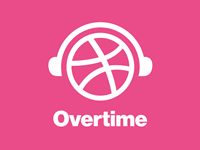Patents management has recently made a change to the paid overtime authorization policy that should make it clearer to both employees and managers.
On October 18, 2016, management issued a new “Overtime Policy for Patent Examiners” in an attempt to bring USPTO overtime policy into the 21st Century. This policy retained many of the previous requirements and procedures including the procedure for authorizing overtime through the completion of a Form CD-81 every pay period by the Technology Center Directors.
Unfortunately, under this authorization procedure, employees often believed they were approved to work overtime at the beginning of a pay period and began to do so, only to learn from their supervisors a few days into the pay period that they were not approved to work any overtime that pay period. The delayed counting of a single office action or a simple miscalculation by the employee or supervisor could result in the employee’s production for the fiscal year to date being lower than expected causing them to be ineligible to work overtime. To avoid such confusion and the hard feelings employees often felt, the USPTO has instituted a new policy for completing the CD-81 authorizing overtime usage.
Under the previous USPTO policy, Directors filled out a Form CD-81 that listed those employees who were authorized to work paid overtime during the next pay period based upon employee performance from the prior pay period. However, that meant that the CD-81 authorization for each new pay period was due before the employees’ final performance for the prior pay period was known (as final performance reports are not available until 2-3 days into the next pay period). As a result, an employee might work overtime hours in the first few days of a pay period only to find out that their previous pay period performance was not sufficient to permit authorization of the employee to work overtime. In years past, this could result in an employee not being authorized, and therefore not being paid for overtime already worked.
Recently, the USPTO changed the overtime authorization policy to put an end to this confusion. With a few notable exceptions, most CD-81 authorizations for the upcoming pay period will now be based on an employee’s performance from the previous pay period rather than on the employee’s performance in the pay period during which the CD-81 authorization is being prepared. Thus, employees and supervisors will now know with certainty when the CD-81 is prepared whether the employee will be authorized to work paid overtime for the entirety of the next pay period. For example, in order to approve a CD-81 for pay period 15, the Supervisor during pay period 14 will look at the final production and docket management reports for pay period 13 to determine eligibility for working overtime in pay period 15.
Employees should also take note of the exceptions to the new general CD-81 policy. Most notably, in the first pay period of a new fiscal year, the CD-81 authorization will initially be based upon an employee’s performance in pay period 25 of the previous fiscal year. But as with the previous policy, supervisors will re-evaluate overtime eligibility after final end-of-fiscal year reports are issued and complete any CD-81 corrections consistent with those reports. Supervisors will use a similar process for the first pay period of Quarters 2, 3 and 4. The CD-81 authorization will be based on an employee’s performance in the next-to-the-last pay period of each of Quarters 1, 2, and 3. Supervisors will then re-evaluate overtime eligibility after the end-of-quarter performance reports are available and complete any necessary CD-81 corrections.
This new guidance should help both employees and supervisors to better understand overtime authorization and avoid confusing situations and possible loss of pay.

